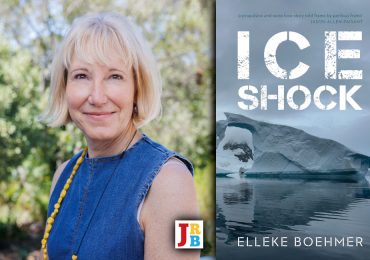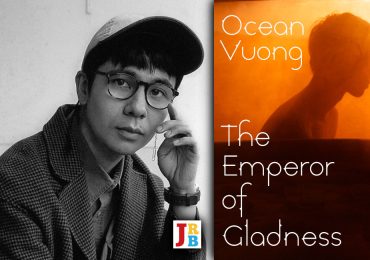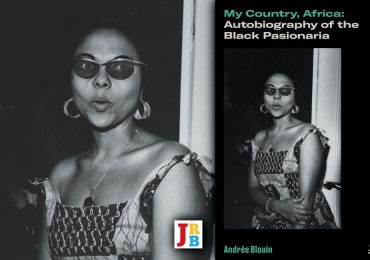Despite a tone of hopelessness, Salman Rushdie’s latest novel The Golden House carries majesty, from its prose to its world-weary gaze.
The Golden House
Salman Rushdie
Jonathan Cape, 2017
1.
 Salman Rushdie once said in an interview that during the writing of a particular novel he found himself without a clear idea of how the book might proceed. He knew only the beginning and the end that would form the book’s arc. Importantly though, there was a defining idea through which the entire novel would pass, that is to say a key that would unlock the entire story and direct the author’s writing. If there is a key to The Golden House—Rushdie’s twelfth work of adult fiction—a single idea that pulls the narrative and perhaps the reader across the book, it might be the absurd times in which we currently find ourselves.
Salman Rushdie once said in an interview that during the writing of a particular novel he found himself without a clear idea of how the book might proceed. He knew only the beginning and the end that would form the book’s arc. Importantly though, there was a defining idea through which the entire novel would pass, that is to say a key that would unlock the entire story and direct the author’s writing. If there is a key to The Golden House—Rushdie’s twelfth work of adult fiction—a single idea that pulls the narrative and perhaps the reader across the book, it might be the absurd times in which we currently find ourselves.
At the centre of The Golden House is Nero Golden, a seventy-year-old patriarch who mysteriously decamps with his three sons from a city and country that must not be named to a mansion in an enchanted New York City communal garden. The names of this family of men reveal something of their ambitions: Nero (last emperor of the Julio-Claudian dynasty), Petronius (Roman author in the court of Nero), Lucius Apuleius (Roman author of The Golden Ass) and Dionysus (Greek god of fertility and wine). Their chosen—not given—names, of course. But then the novel begins at the start of Barack Obama’s presidency, when the USA was—at the least—still considered a country largely welcoming of foreigners; in a time when hope and progress seemed like plausible concepts.
The story is told from the vantage of René, who has secretly taken on the Golden family as the big movie project that will define his filmmaking career. René was raised by scholars in a gentler era; idealism, art, critical thinking and kindness were the foundations of his family life and upbringing. And it is from René’s point of view that we watch the Golden family as it moves both away from and towards certain tragedy. As René, often myopic in his world of film and ideas, astutely observes: ‘Tragedy is the arrival in human affairs of the inexorable, which may be external (a family curse) or internal (a character flaw) but in either case events would take their inescapable course.’
In The Golden House Rushdie creates, as he has always done, a complex chain of interlinked stories. His characters are interesting, often eccentric, brilliant or beautiful (the women are beautiful unless they are not) and rarely dull (unless they are). To read Rushdie is to engage with a novel in which ideas and discourse are as elemental to the telling as the labyrinthine storyline and plot. Then there are the language play and the dialogue, which add an exceptional yet light quality to Rushdie’s writing. In The Golden House, the Russian Vasilisa says: ‘He is the King. He knows what he wants. And: everything you want, she says, when you want it, it’s yours …’
And later: ‘You see the categories are ten, fifteen, twenty. I recommend generosity. Yes, in thousands of dollars, darling. Perfect. You will not regret.’
In Midnight’s Children and The Moor’s Last Sigh, Rushdie shaped an English of postcolonial India that was audacious and piercing. From The Moor’s Last Sigh:
‘Too many crooks and books have filled your ears,’ Epifania protested. ‘What are we but Empire’s children? British have given us everything, isn’t it?—Civilisation, law, order, too much. Even your spices that stink up the house they buy out of their generosity, putting clothes on backs and food on children’s plates. Then why speak of such treason and filthy up my children’s ears with what-all Godless bunk?’
The Golden House is something of a departure from the magical realism of several of Rushdie’s previous novels—perhaps as far away as the author will ever get (there are still ghosts and the occasional witch, but more on this later). The book is set in the material world, with a very human-made storm brewing in the distance. Still, it is characteristically Rushdie, packed with turns to madness, cautionary tales about limiting freedom of speech, a ‘Joker’ president, travails into the meaning of identity politics, and more besides. To read a Rushdie novel—and The Golden House is no exception—is to temporarily inhabit a storytelling multiverse. Exhausting? Perhaps for some. Easy to get lost? Certainly. The literary critic James Wood complained that Rushdie’s writing was more hysterical realism than magical. But then millions have demurred.
2.
Salman Rushdie, who turned seventy this year, has had a life that does not fall short in many categories: books (twenty-three), grand accolades (including a Man Booker Prize), parties, wives (four, including model and TV chef Padma Lakshmi), and, yes, one fatwa, issued by the Ayatollah Ruhollah Khomeini in 1989 in response to what the latter viewed as Rushdie’s apostasy in The Satanic Verses. The fatwa, which ordered that Rushdie and anyone involved in the publication of the book be executed, sent the author into hiding for nine years. During this time he assumed the name Joseph Anton, as chronicled in the eponymously-titled memoir, which derived from the names of two of his favourite writers, Joseph Conrad and Anton Chekov.
The trauma and damage of those years, not only for Rushdie and his close circle but for others in proximity to the book, must not be forgotten: the book’s Japanese editor was murdered, the Italian translator stabbed, and the Norwegian publisher shot three times in the back (incredibly, the latter two survived). Bookshops were firebombed, books burned and several people were reportedly killed during protests about the novel. Rushdie was disparaged by fellow writers for not withdrawing the book; in turn he slated those who would not publish it. In 1988 Rushdie was disinvited from attending the Weekly Mail Book Week in South Africa, earning all those involved in the saga the ire of JM Coetzee, who said: ‘The South African intellectual community, among which I count myself, comes out of the affair looking pretty stupid.’ The trip had been cancelled at the suggestion of Rushdie’s friend, Nadine Gordimer, in response to threats of violence and pressure from local Muslim organisations.
The scale of the response to the book, then, was unprecedented; but Rushdie had faced hefty criticism before The Satanic Verses. The release of Rushdie’s second and most famous novel, Midnight’s Children—which won not only the Booker in 1981 but also The Best of the Booker in 2008—lead to a disagreement with his father, and it so angered Indira Gandhi, the then-Prime Minister of India, that she sued Rushdie for libelous statements.
And he’s faced criticism since. Zoë Heller was scathing of his political stance, as well as what she called his ‘egregiously uncharitable moments’ when writing about his wives in his memoir. Pankaj Mishra issued a sharp rebuke to Rushdie for objecting to Mo Yan’s Nobel Prize for Literature (2012), and suggested Rushdie ‘believed in the Bush administration’s resolve to bring democracy through war to Afghanistan’, post-9/11. Rushdie retorted that he had not supported the war but thought reprisal against al-Qaeda a fair response, and that as the President of American PEN he had duly disapproved of Bush. In 2015, there was a public fallout when several writers, including Michael Ondaatje and Teju Cole, withdrew from attending an American PEN ceremony to bestow an award on the surviving French cartoonists from Charlie Hebdo. Rushdie this time was scathing (to be precise, he called the writers ‘pussies’ in a tweet).
One must ask what it takes to persist.
Perhaps the answer is not only found in Rushdie’s love for and gifts as a writer, but in his belief that fiction offers a form of human truth that is eclipsed in other forms of writing or reportage. It is his belief that novelists must write that truth. Debatable politics or not, Rushdie has gone where many would choose not to go. To pen the controversial, the uncomfortable and the unpopular might have a few takers, but to continue to write and hold fast to one’s beliefs in the face of such widespread fury and fallout is exceptional.
The Golden House too wears its politics on its sleeve, and it is impossible not to make direct links to the current guy in the White House (who is never mentioned by name in the novel—not out of fear, but disgust). From the description of the crass Nero, who wants his name in gold letters on whatever building he can add it to, to the unscrupulous deals that made the Joker’s empire, we are reminded that corruption and greed harm us all in ways we might only comprehend in retrospect. Says René: ‘The world outside the haunted house had begun to feel like a lie. Outside the house it was the Joker’s world, the world of what reality had begun to mean in America, which was to say, a kind of radical untruth: phoniness, garishness, bigotry, vulgarity, violence, paranoia …’
But it is also the acquiescence, the author appears to say, that makes us complicit, as does the refusal to make clear moral distinctions and stand by them (here Bernie Sanders supporters are referenced).
3.
As a work of literature The Golden House is Rushdie’s finest writing in many years. Despite a tone of hopelessness, the book carries majesty, from its prose to its world-weary gaze. It is a considerable work of art and offers homage to the creative world with numerous references to films, poets and authors, painters, sculptors and musicians, in mentions that are often unannotated. A character says: ‘This is what I am not: I am not one thing. I contain multitudes. Do I contradict myself? Very well, I contradict myself’—and thus Walt Whitman’s epic poem, ‘Song of Myself’, intrudes.
The novel is also immensely readable. From the chapters focused on Nero’s eldest son, a brilliant and high-functioning autistic man, to an engagement with identity politics via his last-born son, Dionysus (‘D’) and his girlfriend, Ria, tender moments crack it open. Ria works for the Museum of Identity and it is she who pushes D to define who he truly is, and in so doing possibly missteps. In an extraordinary chapter, the author (via René) looks into transgendered lives:
[…] the difference between woman and female, gender nonconforming, genderqueer, non-binary, and from Native American culture, two-spirit. The Phrygian goddess Cybele had MTF (male to female) servitors called gallae. In the African room the MTF okule and the FTM (female to male) agule of the Lugbara tribe, the transsexual Amazons of the Abomey, Queen Hatshepsut in male clothing and false beard.
Rushdie navigates this section of the novel delicately and openly, with an ear turned to a younger generation. On the various generational approaches to freedom of speech and identity politics, Rushdie may differ, but he also asks the necessary questions and hears the answers.
That said, the place where the novel most disappoints is in its depiction of women. Unlike Midnight’s Children, The Moor’s Last Sigh, Fury and The Enchantress of Florence—books with women and strong female characters at their heart—most of the women in The Golden House appear only as part of the supporting cast. Vasilisa, the Russian beauty and wife to Nero, is given something of a starring role, yet to classify her as, well, an actual witch seems a step too far, especially in a novel which is ostensibly realist. While on one hand the transactional nature of Nero and Vasilisa’s relationship comes across as a fair trade—her beauty for his wealth—Vasilisa is not given the same measure of humanity as the ageing tyrant Nero. Says the witch:
But there it is, the deep voice commanding her at the deepest level, the level of the molecules of instruction, twined into the four helical amino acids of her being, which is also mine. It is who I is. It is who she am.
No, she is not human at all.
There is also Rushdie’s repeated use of the word ‘whore’—and not only directed towards women in the world’s oldest profession, who I am sure would prefer an alternative title anyway—as well as his archaic use of the word ‘men’ to denote all of humanity. While elsewhere Rushdie consistently demonstrates how wired he is, how contemporary his ideas are, from music to identity politics, this comes across as anachronistic and disconcerting.
As the novel reaches its climax, René gets the story he has been after for the duration of the Obama presidency, and in the process comes of age, despite his involvement in the Golden House’s greyish world. While it is on one level a lament about the age of Trump and the rise of militant white supremacists, the novel does not ultimately feel pessimistic. If anything Rushdie offers up the book—this book, with its detailed descriptions of movies from Hitchcock to Herzog, the numerous lines from novels, poems and songs, his portrayal of artists and the arts—as a counter to unreason and hatred.
Art, books, ideas—this is what we are offered, and should accept, and with them take aim against a world going mad.
- CA Davids is a writer and editor. Her debut novel, The Blacks of Cape Town, was published in 2014. Follow her on Twitter.






Much gratitude and compliments to the reviewer as I read with great interest the most informative review of The Golden House, by CA Davids.
It was a great example of the role of a serious and competent reviewer.
Am waxing because I appreciate how every bit helps to promote the love of reading as widely as possible .
A reviewer who peaks curiosity especially in our fast paced society with competing platforms to stay informed, a good book review lifts the scale to elevate the love of reading !